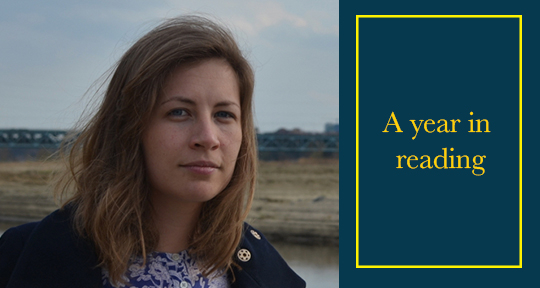Editor-at-Large for Hungary Diána Vonnák, who joined us in October this year, moved between fiction and nonfiction titles in 2017. Some of these books blurred the lines between both and probed the relationship between invented worlds and our own.
I spent much of this year reading books I would have trouble classifying either as fiction or nonfiction. They reminded me of Geoff Dyer, who began his “Art of Nonfiction” interview with the Paris Review by protesting the division: “Fiction, nonfiction—the two are bleeding into each other all the time.” They do, and the result is often great. Here are my favourites from 2017.
I started the year with Philippe Sands’ East West Street: On the Origins of Genocide and Crimes Against Humanity, an engrossing family memoir-cum-intellectual history. Sands, a human rights lawyer, sets off on a journey to recover his own family history—which leads him back to Lviv, a city in Western Ukraine. Before the Holocaust eliminated its prolific Jewish life, Ralph Lemkin and Hersch Lauterpacht, who would later become legal scholars, both studied there. Just like Sands’ own grandparents, Lemkin and Lauterpacht left their hometowns and were spared from the massacre that eradicated their entire families. Sands combines a precipitating personal memoir with a vivid reconstruction of how the Holocaust led these two thinkers to develop the notions, in Lemkin’s case, of genocide and, in Lauterpacht’s case, of crimes against humanity. Sands shows how their ideas originated from their personal lives, and as he follows Lemkin and Lauterpacht through emigration, he reconstructs their respective intellectual environments. It all culminates in the milestone legal debates that took place after the Holocaust—Sands shows us how Lemkin’s and Lauterpacht’s own compelling circumstances shaped their arguments. It is rare to see legal history woven so seamlessly into personal reflection.


